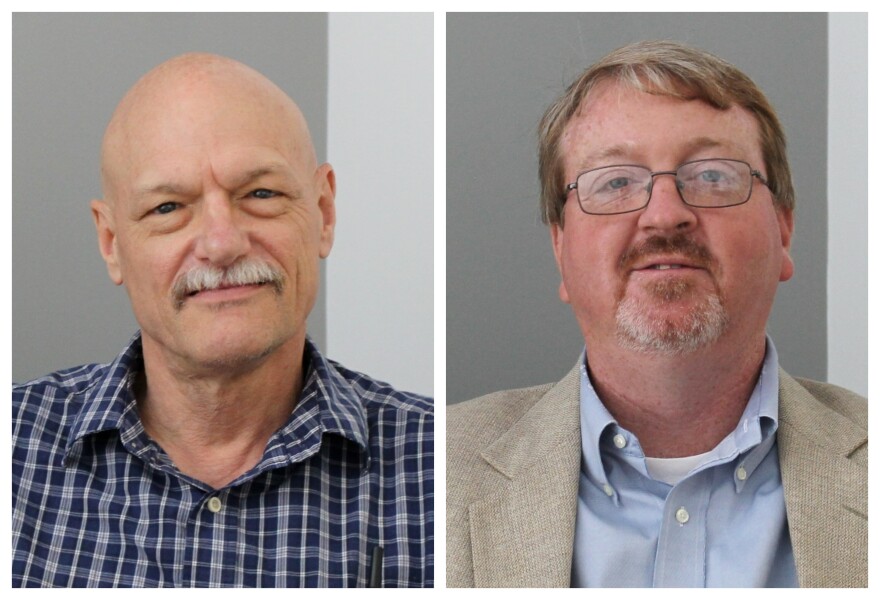Rivers have never been static things – least of all the mighty Mississippi. But the major waterway’s recent volatility has taken that natural characteristic to new levels.
“Even Lewis and Clark made measurements on how much the river level changed every day … and their journals are full [of] what those readings are,” Robert Criss, professor of earth and planetary sciences at Washington University, said on Monday’s St. Louis on the Air. “The river [is now] demonstrably more than twice as volatile [as] it was historically.”
Criss added that the third-highest water level ever recorded along the Mississippi’s local banks was just a couple years ago, in January 2016.
“On New Year’s Day,” he said. “This is preposterous. These rivers are not responding in a natural way.”
Criss joined host Don Marsh to discuss river and floodplain policy in the region. Also participating in the discussion were Jonathan Remo, an associate professor in Southern Illinois University Carbondale’s Department of Geography and Environmental Resources, and David Stokes, executive director of the Great Rivers Habitat Alliance.
All three guests have a role in a free conference taking place in Forest Park this week: River Soundings: Life, Laws, and Levees on the Mississippi.
Stokes, whose organization aims to educate the public about policy issues and opposes commercial floodplain development, noted that major floods in the metropolitan area have been occurring more frequently.
“We’ve seen two major floods in the last three years in our region,” he said. “Nonetheless, cities keep trying to destroy and pave over the floodplain constantly – with new malls, new hotels, new homes, whatever – and it keeps making it worse.”
Subsidies such as tax increment financing often help pave the way for such development, Stokes added, and he’s convinced those subsidies should be a thing of the past.
“The one constant is that the average taxpayer is footing the bill for river and water policies that benefit the private sector but socialize the cost to the public, all while at the same time making flooding worse," he said.

Further complicating water policy in the region – and accountability – is the way in which the National Flood Insurance Program is set up, according Remo, who directs SIUC’s Environmental Resources and Policy Program.
“It’s up to the locals to look at the local government to make sure people in their jurisdiction are following the rules, it’s up to the state government to [make sure] people in all its jurisdictions are following the rules, and it’s up to the federal government to make sure all the states are following all the rules related to this,” Remo said. “But with this development along with the policy holes in here, it doesn’t seem to be working too well.”
Along with infrastructure maintenance, debris management and water quality are also of concern, he added.
“Not only do we have to worry about what people are throwing out the window,” Remo said in response to one listener who called in to the show, “we’ve got to worry about what they’re flushing down the toilet. There’s big issues nowadays with all kinds of water quality – antibiotics ending up in our water system, and all kinds of products used in beauty supplies, microplastics … we don’t know a whole lot about some of these things.
“So it’s up to us – up to everyone – to at least try to take care of the trash and be thoughtful when you flush things down the toilet.”
Related Event
What: River Soundings: Life, Laws, and Levees on the Mississippi
When: 12:30-8:30 p.m. Wednesday, June 27, 2018
Where: Forest Park (Jones Visitor & Education Center, 5595 Grand Dr., St. Louis, MO 63112)
St. Louis on the Air brings you the stories of St. Louis and the people who live, work and create in our region. St. Louis on the Air host Don Marsh and producers Mary Edwards, Alex Heuer, Evie Hemphill, Lara Hamdan and Caitlin Lally give you the information you need to make informed decisions and stay in touch with our diverse and vibrant St. Louis region.



